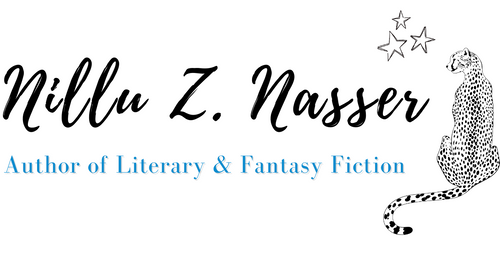Why have a beta reader?
A beta reader gives you feedback on your writing before you set it loose on the world. You’ve worked on your manuscript for months, maybe years, and it is likely that you are so invested in your story that you can no longer see it through a reader’s eyes. A beta reader will be able to tell you if your writing is convincing, what is missing and what is holding up the story. Most beta readers will focus on commenting on the whole picture, although some may kindly make note of minor inaccuracies too. All this before you publish, upping your chances of impressing industry professionals and your readers.
I’m probably more comfortable with using beta readers than a critique group. A group setting can be intimidating, whereas a beta reader allows for a personal response to your writing. Often, writers find their beta readers amongst their peers. It can be difficult to find the right one though so here’s some factors to consider so the process goes as smoothly as possible for both parties.
What’s in it for a beta reader?
If someone has volunteered to beta read for you, it’s probably because they enjoy reading and getting to know new voices. Beta reading teaches you to read with a critical eye; you learn to isolate what works and what doesn’t work in manuscripts, which helps your own writing. Then there’s the reciprocity of writer relationships. You might read for someone to grow your bank of contacts who may help with your own work in the future.
The ideal beta reader
- Is a voracious reader
- Understands what makes a story work: are the hooks strong enough for it to be a page turner; is the plot believable and clearly explained; does the structure work; are the characters convincing; does the location come alive; how is the pacing; is the language appropriate to the genre and target audience; is the point of view and tone the best vehicle for the narrative; is the dialogue realistic; does the story use of foreshadowing, imagery and symbolism well; is there a satisfying resolution
- Knows your chosen genre well
- Is knowledgeable about the publishing world and has good instincts about what it takes to get noticed
- Won’t be nit-picky about grammar or typos at this stage. S/he knows that the beta read is more about the bigger picture
- Is not a relative or a close friend, who may not come to the manuscript with an open mind or want to risk hurting your feelings
- Is tactful and is able to critique your story without mortally wounding your ego
How to be a good beta reader
- Make sure you can afford to give the manuscript the time and attention it deserves
- Point out what you admire and why but don’t give false praise
- Keep in mind the key elements of story-writing and make notes accordingly
- Note the parts of the story you found gripping and the parts where your attention lapsed
- Ask questions if something doesn’t feel right
- Remember this is not your story. Only make suggestions for improvements if you are asked
- Provide a written report and if possible include reactions written on the text as you read it
- Most importantly, be honest in your feedback, but express yourself sensitively. Your job is to help make the story better, not crush the author
How to handle the process
- Choose a small group of readers, ideally 3-4
- Respect a beta-reader’s time by sending as polished a manuscript as possible
- Make your expectations clear up front, for example, the deadline (I suggest four weeks), any area they should focus on, line edit or overall commentary
- Don’t chase. Be patient while you wait for the comments to be returned to you
- You may wish to discuss the comments with the beta-reader once you have read them if this is acceptable with them, but try not to be defensive
- Offer to return the favour should your beta reader need it
- Show your thanks by mentioning your beta reader in your book’s acknowledgements, thanking them on social media, or sending them a copy of the final version. Extra brownie points for handwritten notes to say thank you

Surviving the feedback
- Be in no doubt, this is a scary process
- Try not to read the comments until they are all returned to you. That way you can read them as a whole. If more than one beta reader picks up on an issue, you can pay that element particular attention
- It’s your writing and your vision. Take forward the issues that resonate – it is likely the comments will validate a gut feeling you already had – and disregard the rest
- You are in the business of writing the best book you possibly can. Be prepared to make some changes if the comments ring true
- If you find yourself ignoring all the constructive criticism, it could be that you are avoiding additional work. I get that. It’s hard when you think you are almost at the finish line, but you owe it to yourself to give your manuscript the best possible chance of success
- Finally, don’t let the less favourable comments affect your confidence
Works of art are not made in a vacuum. They are, in every way, a collaboration. A beta reader can be one of the sharpest tools in your box. Don’t be afraid to use them.
